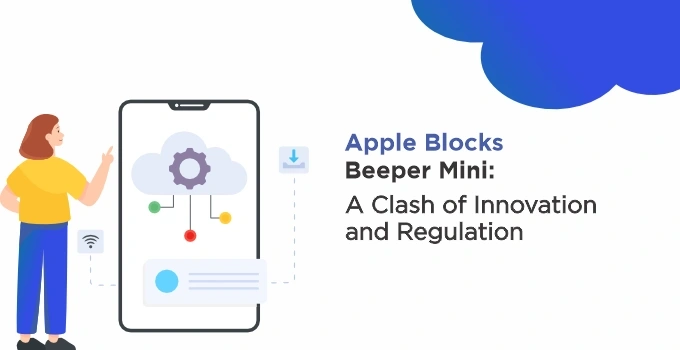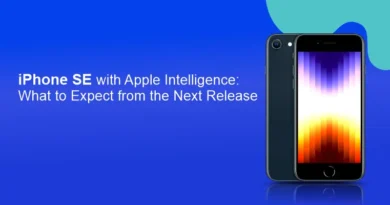Apple Blocks Beeper Mini: A Clash of Innovation and Regulation
A company came up with an ingenious solution to provide a highly sought-after service for non-Apple users. However, Apple intervened and terminated the application, giving rise to a cautionary story for daring and inventive enterprises.
In a tale that underscores the challenges faced by innovative startups in the tech industry, a clever new app known as Beeper Mini briefly succeeded in bridging the gap between Apple’s secure iMessage system and Google’s Android messaging service. However, Apple swiftly moved to block the app just days after its launch, sparking a cautionary tale for risk-taking businesses.
Beeper Mini, a $2-per-month Android app, had ambitious goals rooted in founder Eric Migicovsky’s vision. In 2020, he emphasized that text communication between different devices and platforms should prioritize human interaction, transcending underlying technology conflicts. The issue at hand was the incompatibility between Apple’s iMessage and Google’s Android messaging, especially in handling encrypted messages.
The app aimed to seamlessly pass encrypted messages between Apple and Google systems without the Android messages appearing as unsecured “green bubble” texts on Apple screens. This promising solution involved clever reverse engineering of parts of Apple’s iMessage system. Importantly, Beeper Mini did not require users to sign into an iCloud account, setting it apart from some rival cross-platform messaging services.
However, Apple’s protective stance on iMessage and its commitment to user privacy led the tech giant to close the loophole exploited by Beeper Mini, effectively shutting down the app. This incident highlighted the broader regulatory backdrop surrounding Apple’s control over iMessage and the push by European Union officials to open up the technology to rivals, such as Google’s RCS, for seamless inter-platform messaging.
Apple’s action stirred controversy and even caught the attention of Senator Elizabeth Warren, who questioned the move. While it exposed security concerns with Apple’s rivals’ messaging services, Warren’s tweet supported Beeper Mini’s underlying idea that messaging between different platforms should be easy and secure.
Nevertheless, it’s crucial to consider the business dynamics at play. Apple’s iMessage operates on its servers and is offered to users at no extra cost. Some argue that Beeper charged Android users $2 per month to leverage systems running on Apple’s servers without a financial arrangement with Apple.
In the end, the clash between Beeper and Apple serves as a reminder of the intricate balance between innovation and leveraging proprietary technology, especially when navigating the competitive landscape of messaging services.



